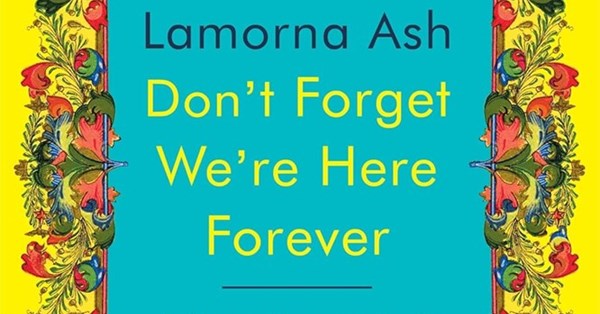THERE is a statue in the Tate, Jacob and the Angel. It is vast and confronting, two fleshy alabaster figures embracing, the angel holding up Jacob as if to keep him in the fight. Don’t Forget We’re Here Forever opens and closes with this, two figures “at the darkest moment of the night . . . afraid to lose the other’s heat, afraid to lose the other, afraid to lose”. The book began with an anthropological interest in a new wave of conversions. With typical self-awareness, Ash admits that it was almost immediately also personal, an experiment in “whether I could become a Christian in two years”.
Ash is young, queer, and progressive, her only Christian background a Church of England primary school. She admits to starting with “all these unquestioned assumptions about Christianity, that it was . . . endemically misogynistic and homophobic, permanently stained by its status as a colonial handmaiden, breeding ground for paedophiles”. Through visits to Christianity Explored, YWAM, St Beuno’s, Quaker meetings, Walsingham, Iona, and beyond, and interviews with converts (and deconverts), she comes to a very different place.
Ash’s first, award-winning book, Dark, Salt, Clear, began as a phenomenological study of a fishing town in Cornwall. Her learning-by-doing approach, heavy on self-reflection, makes for compelling reading. I finished Don’t Forget in 48 hours, because the stakes are so real and so recognisable. For anyone interested in what church really looks like to those outside, especially younger people, it is illuminating and also deeply uncomfortable.
Some sections are unsparing, though she is equally unsparing with herself. After failing to attend the baptism of a young conservative man whose positions she didn’t like, she says: “I am ashamed now that I didn’t witness the culmination of Chris’s conversion. . . On listening back to our conversation, his positions all sounded so much less stable than I remembered. I reduced Chris. I made him into someone I owed nothing.”
What lingers is the vulnerable expression of raw existential longing (“There are so many things I do in the hope they might make me whole”) and the sheer beauty of the sentences. In a passage about the diagrams that she draws of the splits and schisms in church history, she says: “After a while I realised these drawings all resembled Lichtenberg figures, the three-dimensional fractal shape which lighting takes, the same fern-like patterns left in red marks on the skin of those struck by its radiant arrows.”
She has read widely and deeply, not as a scholar, but as someone thirsty to understand a figure who keeps slipping in and out of focus. In one church, she becomes frustrated by the overhead-projector screen blocking an image of Jesus, leaving only his feet visible. This sense of hide-and-seek continues. Her final conclusion is the most honest and moving account of the wrestle of faith that I have read since Christian Wiman’s My Bright Abyss, and I have never heard anyone describe the interior experience of prayer more powerfully.
The new spiritual openness has so far been most visible among conservatives. This book proves that the wind of the Spirit is not tameable, no respecter of tribal lines. If the Church can bear to look into the mirror held up by Ash, she may equip us better to meet this moment, to hold one another up as we wrestle in the long dark night.
Elizabeth Oldfield is a journalist, and the host of the podcast The Sacred. Her latest book is Fully Alive (Hodder & Stoughton, 2024).
Don’t Forget We’re Here Forever: A new generation’s search for religion
Lamorna Ash
Bloomsbury £22
(978-1-5266-6314-6)
Church Times Bookshop £19.80

















